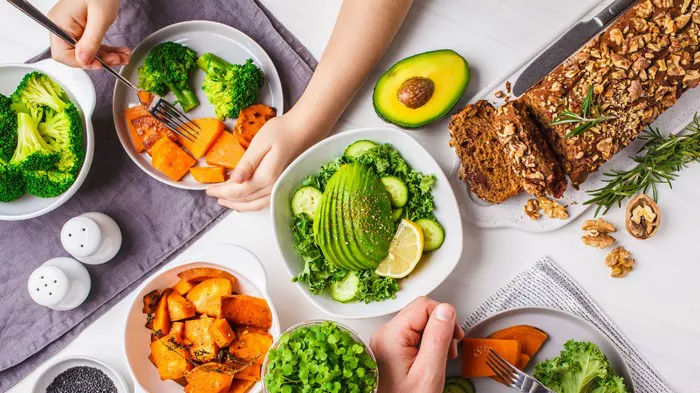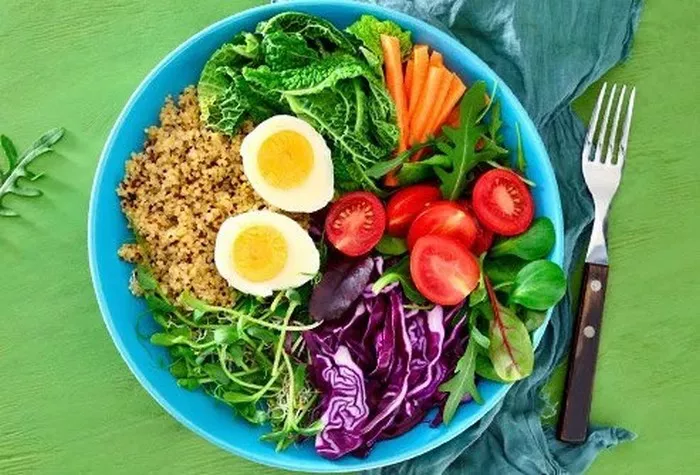In our quest for a healthier lifestyle, one question consistently lingers in our minds: What is a good diet to follow to lose weight? The answer may not be one-size-fits-all, as individual needs and preferences vary. However, in this comprehensive guide, we’ll delve into the key aspects of a good diet for weight loss, offering you valuable insights and practical tips to kickstart your journey towards a healthier you.
1. Balanced Macronutrient Intake
Protein: A good weight loss diet includes an adequate amount of protein. Protein helps you feel full, boosts metabolism, and preserves lean muscle mass. Incorporate lean sources like chicken, fish, tofu, and beans into your meals.
Carbohydrates: Opt for complex carbohydrates like whole grains, fruits, and vegetables. These provide sustained energy, fiber for satiety, and essential nutrients.
Healthy Fats: Don’t shy away from fats entirely. Include sources of healthy fats, such as avocados, nuts, and olive oil, which support overall health and can keep you feeling satisfied.
2. Portion Control
Successful weight loss often boils down to portion control. It’s not just about what you eat, but how much you eat. Consider these strategies:
Use Smaller Plates: A smaller plate can make a reasonable portion look more substantial, tricking your brain into feeling full.
Practice Mindful Eating: Pay attention to your body’s hunger cues. Eat slowly and savor each bite, allowing your brain to register fullness.
Track Your Intake: Consider using a food journal or mobile app to keep tabs on your daily calorie intake.
3. Nutrient Density
When choosing foods for your weight loss journey, focus on nutrient-dense options. These foods are packed with vitamins, minerals, and antioxidants, which promote overall health.
Leafy Greens: Incorporate kale, spinach, and Swiss chard into your meals for an abundance of vitamins and minerals with few calories.
Colorful Vegetables and Fruits: Opt for a variety of colorful produce to ensure you’re getting a wide range of nutrients. Berries, citrus fruits, and sweet potatoes are excellent choices.
4. Hydration
Staying hydrated is crucial for weight loss. Sometimes, our bodies mistake thirst for hunger.
Water: Aim to drink at least 8 glasses of water a day. If plain water is unappealing, infuse it with slices of citrus or cucumber.
Herbal Tea: Herbal teas like green tea or chamomile can be soothing and may boost metabolism.
5. Regular Exercise
While diet plays a significant role in weight loss, exercise complements it by burning calories and building muscle. Incorporate both cardiovascular and strength training exercises into your routine.
Cardiovascular: Activities like brisk walking, cycling, or swimming help burn calories and improve heart health.
Strength Training: Building muscle increases your metabolism and helps you burn more calories at rest. Include weightlifting or bodyweight exercises like push-ups and squats.
In conclusion, a good diet for weight loss is one that focuses on balanced macronutrients, portion control, nutrient-dense foods, hydration, regular exercise, and professional guidance.
FAQs about the topic of a good diet for weight loss:
1. What are some popular diets for weight loss?
Some popular diets for weight loss include the Mediterranean diet, the ketogenic diet, intermittent fasting, the paleo diet, and the DASH diet. Each of these diets has its own approach to achieving weight loss, emphasizing various food groups and meal timing.
2. How can I determine the right diet for me?
The right diet for you depends on your individual preferences, lifestyle, and health goals. It’s advisable to consult with a healthcare provider or registered dietitian who can assess your specific needs and help you create a personalized plan.
3. Is it necessary to count calories to lose weight effectively?
Counting calories can be a helpful tool for some individuals to monitor their food intake, but it’s not the only approach to successful weight loss. Focusing on the quality of your diet, portion control, and mindful eating are equally important.
4. Are there any specific foods I should avoid when trying to lose weight?
While there are no foods you must completely avoid, it’s advisable to limit or moderate the consumption of highly processed and high-calorie foods, sugary beverages, and excessive amounts of saturated and trans fats. Moderation is key.
5. Can I lose weight without exercise?
While weight loss can occur through dietary changes alone, incorporating regular exercise can accelerate your progress, improve overall health, and help maintain muscle mass as you lose weight.
6. How much weight can I expect to lose in a healthy manner per week?
A safe and sustainable rate of weight loss is generally around 1 to 2 pounds (0.45 to 0.9 kilograms) per week. Rapid weight loss can lead to muscle loss and isn’t recommended.
7. What role does hydration play in weight loss?
Staying hydrated is essential for overall health and can support weight loss by preventing the body from confusing thirst with hunger. Drinking enough water can also help with digestion and metabolism.
8. Are there any specific foods that can boost metabolism and aid in weight loss?
Some foods, like green tea, chili peppers, and foods high in protein, may have a slight effect on boosting metabolism. However, the overall impact is modest, and the most significant factor in weight loss is maintaining a calorie deficit through diet and exercise.
9. Can I cheat on my diet occasionally and still lose weight?
Occasional indulgences are normal and can be incorporated into a balanced diet. The key is moderation and not allowing occasional treats to derail your overall progress. It’s essential to find a sustainable eating pattern that you can maintain long-term.
10. Is it possible to spot-reduce fat in specific areas of the body?
Spot-reducing fat in specific areas is a common misconception. Weight loss occurs throughout the body, not in isolated areas. To reduce fat in specific areas, you need to reduce overall body fat through a combination of diet and exercise.
























